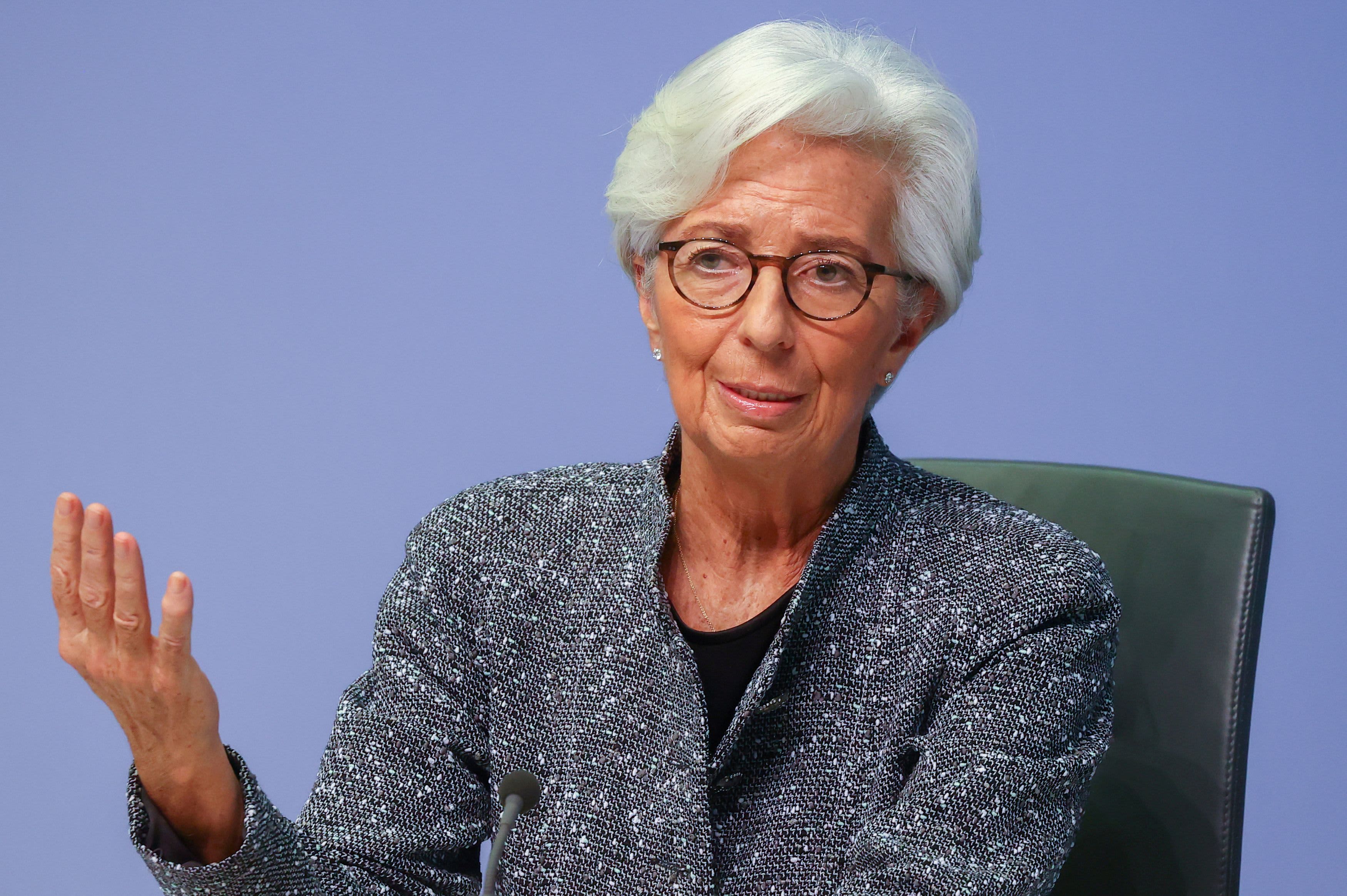
European Central Bank (ECB) President Christine Lagarde gestures as she addresses a news conference on the outcome of the meeting of the Governing Council, in Frankfurt, Germany, March 12, 2020.
Kai Pfaffenbach | Reuters
Inflation in the euro zone surprised markets Wednesday, notching a new record high and piling yet more pressure on the European Central Bank to act.
The cost of living for the 16 nations that share the euro currency rose to 5.1% in January, despite expectations for a sharp drop to 4.4%. December’s figure had come in at 5.0%.
The euro jumped to a session high versus the dollar, trading at 1.1309 by 11 a.m. U.K. time on Wednesday.
The ECB’s Governing Council is meeting this week, with an announcement due on Thursday afternoon. The euro zone’s central bank is set to concentrate on inflation, geopolitical risks, the recent rise in bond yields and its implications for financing conditions.
Another key question will be how independent monetary policy can be set in the region, at a time when banks like the U.S. Federal Reserve are entering a forceful tightening cycle.
“Inflation continues to surprise to the upside, the U.S. Fed looks set to raise rates up to six times this year, starting on 16 March,” said Holger Schmieding, a chief economist with Berenberg Bank, in a research note.
“Against this backdrop the debate at the European Central Bank will likely become even more controversial than before.”
On Thursday, the market will watch for whether ECB President Christine Lagarde will come out with changes to previous statements that a rate hike is “very unlikely” in 2022. Or whether there will be a tweak in the ECB’s assessment over the “transient” nature of the current spike in inflation.
Russia-Ukraine
Another item high on the agenda will be the tensions between Russia and Ukraine, including any potential implications.
“If tensions deepen, resulting in disruptions in energy supply to Europe, we expect the ECB to turn increasingly dovish, focusing on the impact of growth and financial stability, despite likely higher energy inflation in the short term,” explained Anatoli Annenkov, an ECB watcher with Societe Generale, in a note.
More broadly, the ECB seems to accept the fact that there is still significant uncertainty surrounding the inflation outlook.
“There were 17 uses of the word ‘uncertainty’ in the December [ECB] press conference, up from none in October, and the December accounts mentioned ‘exceptionally high uncertainty’ around inflation,” said Mark Wall, a chief economist with Deutsche Bank, in a note.
As it often is with central banks and their communications with markets, it will about small nuances of language and semantics when assessing the road ahead for monetary policy in the region.




